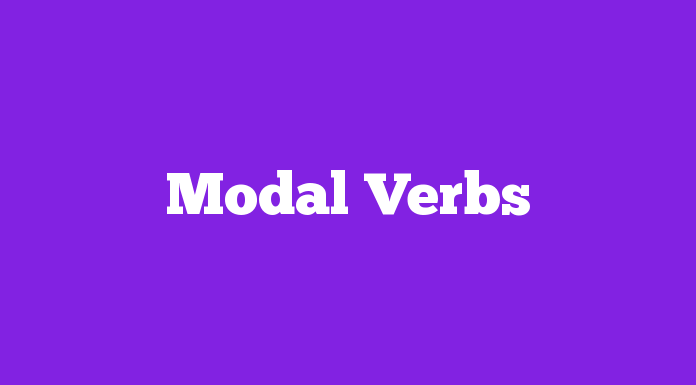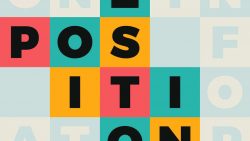What are modal auxiliary verbs?
The verbs can, could, may, might, will, would, shall (mainly British English), should, must and ought are called ‘modal auxiliary verbs’. We can use them before the infinitives of other verbs and add certain kinds of meaning connected with certainty, or with obligation and freedom to act (see next section).
grammar
- Modal verbs have no -s in the third person singular.
She may know his address, (NOT She mays …) - We make questions, negatives, tags and short answers without “do”.
Can you swim? (NOT Do you can swim) Yes, I can.
He shouldn’t be doing that, should he? (NOT He doesn’t should …) - After modal auxiliary verbs, we use the infinitive without to of other verbs. Ought is an exception – see ought.
I must water the flowers, (not I must to water …)
Progressive, perfect and passive infinitives are also possible (see infinitives 2: forms).
I may not be working tomorrow.
She was so angry she could have killed him.
The kitchen ought to be painted one of these days. - Modal verbs do not have infinitives or participles (to may, maying, mayed do not exist), and they do not normally have past forms (though would, could, should and might can sometimes be used as past tenses of will, can, shall and may). Other expressions are used when necessary.
I’d like to be able to skate, (NOT … to can skate.)
People really had to work hard in those days, (NOT People really musted work …) - However, we can express certain past ideas by a modal verb followed by a perfect infinitive (have + past participle).
You should have told me you were coming.
I think I may have annoyed Aunt Maty.
For details of these uses, see the entries on particular modal verbs (modals). - Modal verbs have contracted negative forms that we use in an informal style. Will and would also have contracted affirmative forms For details, see contractions. Some modals have both ‘strong’ and ‘weak’ pronunciations. For details, see weak and strong forms.
- There is quite often used as a preparatory subject with modal verbs, especially when these are followed by “be” (see there).
There may be rain later today.
modal auxiliary verbs meanings
We do not normally use modal verbs (modals) to say that situations definitely exist or that particular events have definitely happened. We use them, for example, to talk about things which we expect, which are or are not possible, which we think are necessary, which we want to happen, which we are not sure about, which tend to happen, or which have not happened.
- He may arrive at any time.
- She could be in London or Paris or Tokyo – nobody knows.
- I can’t swim.
- I think you ought to see a lawyer.
- We really must tidy up the garden.
- What would you do if you had a free year?
- Edinburgh can be very cold in winter.
- I think they should have consulted a doctor earlier.
- You might have told me Frances was ill.
So for further general information about the meanings of modal auxiliary verbs, see related posts. For more detailed information, see the posts for each verb.
need and used to
Need (see need and used to see used + infinitive) are sometimes used in similar ways to modal verbs.
- You needn’t wait for me.
- She used not to be so bad-tempered.
For more information consult a good dictionary like Langman, Oxford, Merriam Webster, or Collins.




Add Comment